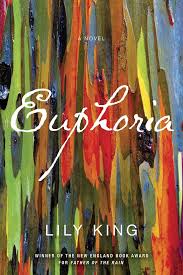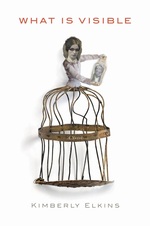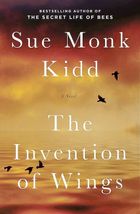There's a lot of historical fiction in literature and in film lately, some of it extremely well researched and consistent with facts. I am enjoying it immensely, as I can lounge with a book or sit in a theatre and rationalize that I'm studying something!
Two of my favorite recent films portrayed some history of African slavery: Ten Years a Slave (of course) and Belle (which did not get a lot of theater time for some reason - have you seen it?). Belle was perhaps more informative, as it dealt with a key turning point in the slavery laws of England. Of course, the British brought the formalized slave trade to its colonies, and thus it's entangled with our own country's abhorrent past.
I'm currently on a roll with books in the historical fiction category. (I've already written about "Thirty Girls" in my June 3 piece on recent books about abductions of women and girls.)
Here are a few other options to consider for some light and engaging American history lessons on the 19th and early 20th centuries:
"The Invention of Wings" by Sue Monk Kidd is a fast read that alternates chapters from the perspectives of infamous abolitionist and feminist Sarah Grimke and "Handful" (imagined for the novel) the maidservant slave gifted to a reluctant upon Sarah on her 11th birthday. It's a captivating tale about not only of the courage and smarts of South Carolina slaves, but of also the tribulations of a southern white woman who's been a stubborn and vocal abolitionist since she was a child. If you've enjoyed this fine author in the past, just read it!
"What is Visible," the first novel by Kimberly Elkins, tells the story of Laura Bridgman, who lost her sight, hearing, plus the senses of taste and smell at age 2 and yet became one America's most famous women in the 19th century. Meticulously researched, we learn of Bridgman's many years at Boston's Perkins School for the Blind under the tutelage (and foster parenting) of Dr. Samuel Howe. Laura develops not only reading and writing skills, but an informed and opinionated personality. It is the foundation of the Helen Keller story, which seems almost commonplace once you've learned about Laura. The novel will almost certainly convince you that there would never have been a famous Helen Keller had the amazing Laura not preceded her. (Indeed, Keller's teacher, Anne Sullivan, was taught and mentored by Bridgman at the Perkins School!) Poet and abolitionist Julia Ward Howe is an intriguing cast member; and other historical figures such as Charles Dickens and Helen Keller herself appear. But Elkins' writing shines most as Laura experiences the world through only the sense of touch, and the memories of normalcy until age 2. Her longings, frustrations, and basic animalistic needs are tangible. A thought provoking read, for sure.
Much more fiction than history, Lily King's compelling novel "Euphoria" is based on the journeys of anthropologists Margaret Mead, Reo Fortune, and Gregory Bateson in New Guinea. King builds a triangle of American wife and husband team of Nell Stone and her husband Fen (loosely Mead and her second husband, Fortune), and their lonely English rival Andrew Bankson (fashioned on Mead's third husband, Bateson). Driven by desperation, tropical fevers, and competitive spirit, the three entangle to create a tragedy of the heart, the soul, and the intellect (King's real achievement here). Throw in some cannibals, a rare matriarchal society, years of real wilderness travel, and you've got an armchair adventure that reflects on universal human nature and the roots of our formalized fascination with aboriginal cultures. While not a stunning piece of literature, it's a gripping and worthwhile read, particularly for a scientist and adventurer like me. It led me to ponder the oddities of "civilized" humanity, and the potential insanities of scientific "drive."
Two of my favorite recent films portrayed some history of African slavery: Ten Years a Slave (of course) and Belle (which did not get a lot of theater time for some reason - have you seen it?). Belle was perhaps more informative, as it dealt with a key turning point in the slavery laws of England. Of course, the British brought the formalized slave trade to its colonies, and thus it's entangled with our own country's abhorrent past.
I'm currently on a roll with books in the historical fiction category. (I've already written about "Thirty Girls" in my June 3 piece on recent books about abductions of women and girls.)
Here are a few other options to consider for some light and engaging American history lessons on the 19th and early 20th centuries:
"The Invention of Wings" by Sue Monk Kidd is a fast read that alternates chapters from the perspectives of infamous abolitionist and feminist Sarah Grimke and "Handful" (imagined for the novel) the maidservant slave gifted to a reluctant upon Sarah on her 11th birthday. It's a captivating tale about not only of the courage and smarts of South Carolina slaves, but of also the tribulations of a southern white woman who's been a stubborn and vocal abolitionist since she was a child. If you've enjoyed this fine author in the past, just read it!
"What is Visible," the first novel by Kimberly Elkins, tells the story of Laura Bridgman, who lost her sight, hearing, plus the senses of taste and smell at age 2 and yet became one America's most famous women in the 19th century. Meticulously researched, we learn of Bridgman's many years at Boston's Perkins School for the Blind under the tutelage (and foster parenting) of Dr. Samuel Howe. Laura develops not only reading and writing skills, but an informed and opinionated personality. It is the foundation of the Helen Keller story, which seems almost commonplace once you've learned about Laura. The novel will almost certainly convince you that there would never have been a famous Helen Keller had the amazing Laura not preceded her. (Indeed, Keller's teacher, Anne Sullivan, was taught and mentored by Bridgman at the Perkins School!) Poet and abolitionist Julia Ward Howe is an intriguing cast member; and other historical figures such as Charles Dickens and Helen Keller herself appear. But Elkins' writing shines most as Laura experiences the world through only the sense of touch, and the memories of normalcy until age 2. Her longings, frustrations, and basic animalistic needs are tangible. A thought provoking read, for sure.
Much more fiction than history, Lily King's compelling novel "Euphoria" is based on the journeys of anthropologists Margaret Mead, Reo Fortune, and Gregory Bateson in New Guinea. King builds a triangle of American wife and husband team of Nell Stone and her husband Fen (loosely Mead and her second husband, Fortune), and their lonely English rival Andrew Bankson (fashioned on Mead's third husband, Bateson). Driven by desperation, tropical fevers, and competitive spirit, the three entangle to create a tragedy of the heart, the soul, and the intellect (King's real achievement here). Throw in some cannibals, a rare matriarchal society, years of real wilderness travel, and you've got an armchair adventure that reflects on universal human nature and the roots of our formalized fascination with aboriginal cultures. While not a stunning piece of literature, it's a gripping and worthwhile read, particularly for a scientist and adventurer like me. It led me to ponder the oddities of "civilized" humanity, and the potential insanities of scientific "drive."



 RSS Feed
RSS Feed